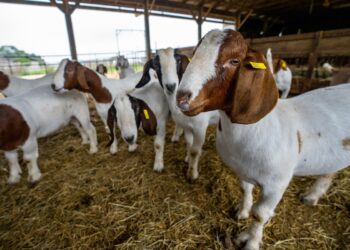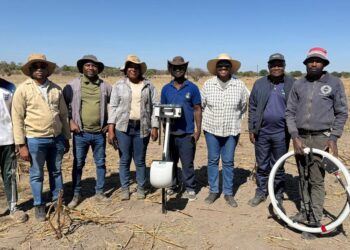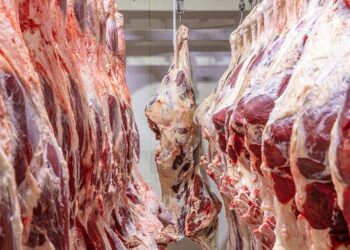
The Minister of Agriculture, Water and Land Reform, Calle Schlettwein, has taken aim at the private sector, whose administration has proved to be a failure in running and making the most out of the green schemes and abattoirs despite renewed empowerment efforts.
Schlettwein expressed his disappointment at the ongoing five-day ministerial planning workshop in the capital, highlighting that the government’s efforts to empower the private sector, such as outsourcing green schemes and abattoirs, haven’t yielded positive results.
“We tried to outsource some green schemes, like Uuvhungu-Vhungu, for good economic opportunities, but six months down the line, no production has happened, and we struggled to find the awarded investor,” the Minister said.
Out of 11 green schemes, two were awarded long-term leases. The Orange River Irrigation Project was awarded to Muadifam Enterprise on a 25-year lease period, while the Uuvhungu Vhungu Diary Project was taken over by Ndalikalimwe Investments CC JV Zeuzer Engineers India Pvt Ltd, for 25 years.
The Tandjieskoppe, Zone, and Katima Liselo Green Schemes are still under evaluation, with the remaining under the belt of the Ministry.
“The past experience of the private sector of not always being the idle pauper is coming through again, we cannot rely on them, they are failing us, maybe our lease contracts are not stringent enough as we have little tools to crawl back on when things go wrong,” Schlettwein said.
He further expressed concern with delays in procurement processes, irrespective of whether it is a small item or an emergency.
“What happens is that a tractor gets a puncture at a farm, however, one needs to run to procurement, where it will take three months to conclude, and by then the cultivating season will be long over. This is another element that is crippling the smooth running of green schemes. Although I take cognisance the Executive Director has improved processes, they are not yet optimal,” the Minister stated.
He therefore recommended that such issues be handled at the green schemes by farm managers on the ground.
“This is because every delay in a decision to start a production cycle away from the optimal time results in a lower yield. Therefore, you need to have farm managers take these decisions while on the ground with the ability to implement,” he implored.
“Then there is livestock production, which is still the backbone of the agricultural sector, here too we are fighting an uphill battle,†he said.
“We started with commodity-based trade, which was best to serve the Northern Communal Areas, but again, the abattoirs are limping, although we refurbished them, operators still failed, leaving farmers with no market. So we must re-tweak this as well. For instance, we gave Katima Mulilo and Rundu Abattoir to Meatco, hoping they will have the expertise to run them, but their financial difficulties make them a difficult partner to work with in that venture,” he added.
Furthermore, Schlettwein said it was unfortunate that Meatco is the only one available.
“Now we have to fix the Meatco mess, then the abattoirs. But we do not know if the farmers and community will possess the patience to wait that long. It is a serious calamity we are facing for non-working abattoirs across the north,” he said.
He added that it was disheartening for the country to have a low-performing livestock market, despite being the only country in Africa that has a Foot-and-Mouth Disease (FDM)-free zone and can sell beef to any international market, unlike South Africa, Botswana, Zambia and Zimbabwe neighbours with active FMD.











